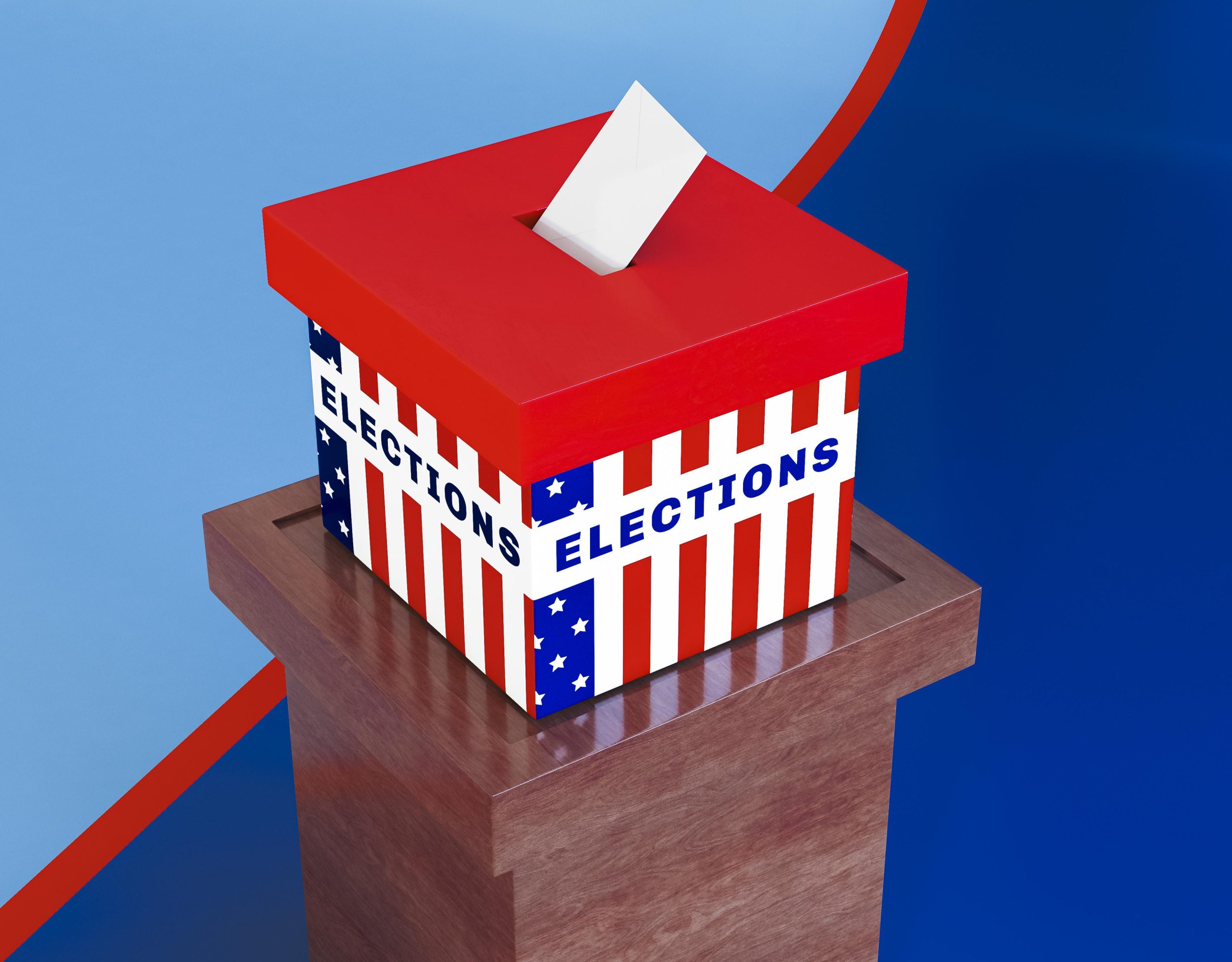Curious about how the U.S. presidential elections impact mortgage rates and the housing market? Let’s explore the potential effects on these crucial aspects of the real estate industry. With Realtor.com predicting a fall in housing sales and average house prices, it’s important to understand the uncertainty and market impact that the election can bring. We’ll discuss current market conditions for both sellers and buyers, delve into historical performance, and examine the influence of previous elections on mortgage rates. Get ready for a data-driven analysis of the future of the housing market and mortgage rates.
Impact on Nationwide Housing Sales
The U.S. presidential elections have a significant impact on nationwide housing sales. The outcome of the election can have implications for real estate agents, as it affects buyer sentiments and housing affordability. Market conditions can shift depending on which candidate wins, and this can influence the decisions of both buyers and sellers.
Buyer sentiments play a crucial role in the housing market. If buyers feel uncertain about the future, they may hold off on purchasing a home, leading to a decrease in housing sales. On the other hand, if buyers feel optimistic about the economy and their financial situation, they may be more inclined to make a purchase, boosting housing sales.
Sellers can have advantages depending on the election outcome. For example, if the market favors sellers, they may have the upper hand in negotiations and be able to sell their homes at higher prices. Conversely, if the market favors buyers, sellers may need to adjust their expectations and pricing strategies to attract potential buyers.
Housing affordability is also influenced by the election. Proposed policies by presidential candidates can impact housing affordability, particularly for first-time homebuyers. For example, policies that promote affordable housing initiatives or provide incentives for homeownership can make homes more affordable for buyers.
Effect on House Prices in Major Metropolitan Areas
When it comes to the U.S. presidential elections, the effect on house prices in major metropolitan areas can be significant. Here are four key points to consider:
- Effect on housing inventory: The outcome of the election can impact the supply of houses in major metropolitan areas. Policies implemented by the winning candidate may encourage or discourage the construction of new housing, which in turn can affect the overall inventory available in the market.
- Market conditions for buyers: The election can create market volatility and uncertainty, which can influence the conditions for buyers. Fluctuations in the economy and investor sentiment can impact mortgage rates and affordability, making it important for buyers to closely monitor market trends and make informed decisions.
- Historical trends in major metropolitan areas: Historical data shows that major metropolitan areas, such as San Francisco, have experienced consistent growth in house prices over time. Despite election outcomes, these areas have shown resilience and potential for long-term investment.
- Economic impact on house prices: The economic policies proposed by presidential candidates can have an indirect impact on house prices. Factors such as fiscal stimulus measures, regulation changes, and market reactions to election outcomes can influence the overall stability and growth of the housing market in major metropolitan areas.
It is essential to closely monitor market conditions and seek expert advice to navigate the potential effects of the U.S. presidential elections on house prices in major metropolitan areas.
Influence on Creation of New Housing Supply
To understand the impact of the U.S. presidential elections on the housing market, it is crucial to consider how they influence the creation of new housing supply. Political influence plays a significant role in determining the availability of housing permits and the subsequent impact on housing construction. The outcomes of the election can have direct implications for new housing development, as different policies and priorities may shape the housing supply based on the election results.
An analysis of the connection between election results and housing availability reveals the following:
| Election Outcome | Influence on Housing Permits | Impact on Housing Construction | Political Influence on Housing Supply |
|---|---|---|---|
| Democratic Victory | More permits in blue counties | Increased housing construction | Policies favoring housing development |
| Trump Re-election | More permits in red counties | Increased housing construction | Policies favoring housing development |
The table emphasizes the political influence on the housing market, highlighting how election outcomes can shape the creation of new housing supply. By understanding this connection, stakeholders in the housing market can better navigate the potential impact of the presidential elections on housing availability.
Uncertainty and Market Volatility
Navigating the impact of the U.S. presidential elections on the mortgage rates and housing market can be challenging due to the uncertainty and market volatility surrounding the election. Here are four key points to consider:
- Impact on stock markets: Recent events, such as the Impeachment process, US-China trade disputes, and the spread of Coronavirus, have negatively affected global stock markets. The election outcome could further contribute to market volatility.
- Speculation and market impact: Instead of speculating on the impact of the election, it is important to look at the current data and market conditions. Uncertainty can lead to market fluctuations, making it difficult to predict the exact impact on mortgage rates and the housing market.
- Current conditions for sellers: In San Francisco, the current market conditions favor sellers. The city is experiencing a seller’s market with extremely low supply levels compared to a year ago. This low inventory gives sellers an advantage in a time of robust demand.
- Current conditions for buyers: Buyers can also feel hopeful about present conditions. Mortgage interest rates are at record lows, with Fannie Mae expecting an average rate of 3.7% for a 30-year fixed mortgage in 2020 and 2021. Average monthly mortgage rates are at their lowest point in three months, providing favorable conditions for buyers.
Considering the historical performance of San Francisco housing, it is a good long-term bet regardless of election outcomes. The growth of San Francisco’s housing closely follows the performance of the overall stock market. Positive growth in average home prices has been observed during periods of economic prosperity, with smaller drop-offs during recessions.
Current Market Conditions for Sellers
In the current market conditions for sellers, you can take advantage of a seller’s market in San Francisco with extremely low supply levels compared to a year ago. This means that there is a seller advantage, as low inventory gives sellers the upper hand in a time of robust demand. It is a great time to be a seller in San Francisco. To further illustrate the favorable conditions for sellers, let’s look at the table below:
| Market Conditions | San Francisco |
|---|---|
| Supply Levels | Extremely Low |
| Demand | Robust |
| Mortgage Rates | Record Low |
As shown in the table, San Francisco is experiencing a seller’s market with extremely low supply levels. This scarcity of available homes creates a sense of urgency among buyers, leading to increased competition and potentially higher sale prices. Additionally, the record low mortgage rates further incentivize buyers to make a purchase, contributing to the robust demand in the market. With low supply levels, strong demand, and favorable mortgage rates, sellers in San Francisco are in a prime position to benefit from these current market conditions.
Current Market Conditions for Buyers
If you are a buyer in the current market conditions, you can feel hopeful about the favorable conditions that exist. Here are four reasons why:
- Record low mortgage interest rates: Mortgage rates are currently at record lows, with an average rate of 3.7% expected for a 30-year fixed mortgage in 2020 and 2021. These low rates make borrowing more affordable and can save you thousands of dollars over the life of your loan.
- Buyer advantages: With low inventory levels and robust demand, buyers have an advantage in the market. Sellers are motivated to sell, which means you may have more negotiating power and flexibility with your offers.
- Favorable conditions: The average monthly mortgage rates are at their lowest point in three months. This means that now is a great time to lock in a low rate and secure favorable financing for your home purchase.
- Long-term bet: Regardless of election outcomes, San Francisco real estate has historically been a good long-term bet. The growth of housing in the city closely follows the performance of the overall stock market. So, if you’re looking to invest in a home, San Francisco is a solid choice for long-term appreciation.
Historical Performance of the Housing Market
When considering the impact of U.S. presidential elections on the mortgage rates and housing market, it is important to examine the historical performance of the housing market. Historical data show that the growth of San Francisco’s housing closely follows the performance of the overall stock market. Positive growth in average home prices has been observed during periods of economic prosperity, with smaller drop-offs during recessions.
To provide a clearer picture, let’s take a look at the historical trends of mortgage rates during election years. Freddie Mac began tracking average monthly mortgage interest rates in 1971. In 1972, an election year, interest rates hovered around 7.4%. Inflation caused rates to climb to 13.74% in 1980. Rates started falling in 1984, with an average of 13.88%. By 1992, the average rate was 8.39%. Interestingly, the results of the election don’t seem to bring about much change in mortgage rates. Other social and political factors may have a greater impact on rates. Fluctuations due to the pandemic, unemployment, and social unrest may affect rates more.
It is important to note that mortgage rates are influenced by various factors, including Treasury yields, the economy, the Federal Reserve, and the housing market. Additionally, lenders take into account the borrower’s credit history, income, and job stability when determining the interest rate. Therefore, it may be favorable to take the best rate offered when shopping for a mortgage, rather than waiting for potential changes after the election. By staying informed about the factors influencing mortgage rates and the housing market, you can make informed decisions about your home purchase or refinance.
Historical Trends and Impact on Mortgage Rates
Examine the historical trends of mortgage rates to better understand the impact of U.S. presidential elections on the housing market.
- Impact on interest rates: The results of the election don’t seem to bring about much change in mortgage rates. Other social and political factors may have a greater impact on rates. Fluctuations due to the pandemic, unemployment, and social unrest may affect rates more.
- Economic indicators: Multiple economic indicators, such as GDP growth, inflation, and unemployment rates, influence mortgage rates. These indicators reflect the overall health of the economy and can have a significant impact on interest rates.
- Federal Reserve’s role: The Federal Reserve plays a crucial role in setting short-term interest rates. The decisions made by the Federal Open Market Committee (FOMC) can affect mortgage rates. The relationship between Treasury yields and mortgage rates is also influenced by the Federal Reserve’s monetary policy.
- Forecasting mortgage rates: Forecasting mortgage rates can be challenging due to various factors, including economic indicators, market expectations, government policies, and regulations. Analyst predictions and expert opinions can provide insights into post-election mortgage rate trends. Borrowers should consider these forecasts and monitor economic data and market trends to make informed decisions.
Understanding the historical trends of mortgage rates and considering the impact of U.S. presidential elections, economic indicators, the Federal Reserve’s role, and forecasting mortgage rates are essential for borrowers when navigating the housing market. By staying informed and monitoring market conditions, borrowers can make informed decisions about timing their mortgage rate lock-ins and refinancing options.




